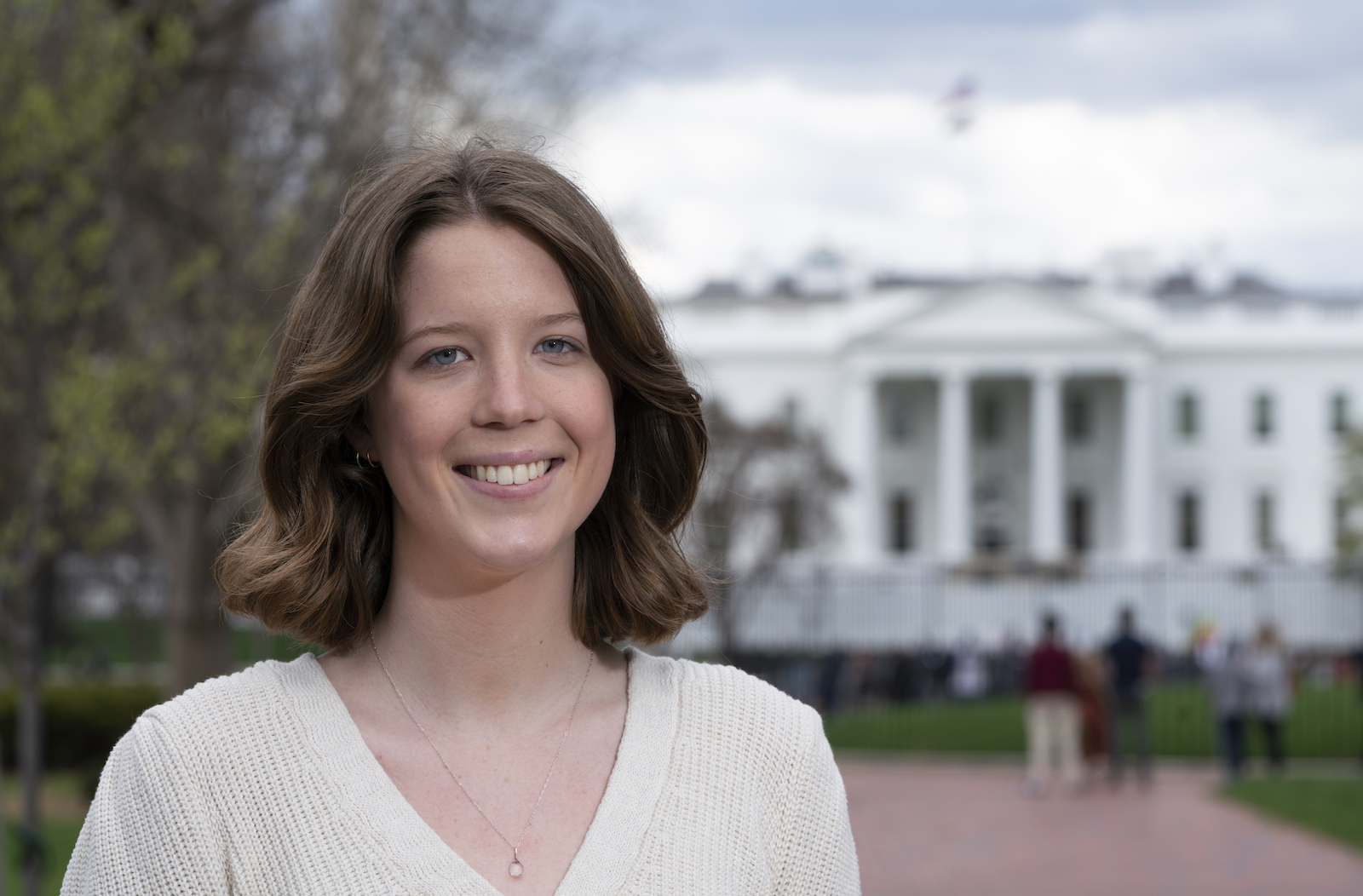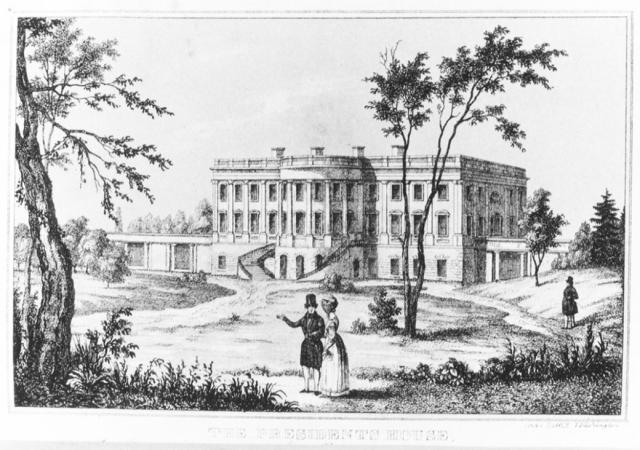Peering Into White House History
April 14, 2022

Emma O’Kane ’23, a double degree student in history and English, is currently a publications intern at the White House Historical Association.
By Jessica Weiss ’05
Most people know of the White House as the workplace of the United States President and his advisors, and the site of critical political decision making.
But this semester, Emma O’Kane ’23, a double degree student in history and English with a minor in classics, is seeing up close all of the ways the White House is also a home. As a publications intern at the White House Historical Association, she works with images and artifacts that show different aspects of life and culture at the Executive Mansion throughout history, from its construction—largely by enslaved and free African Americans—to what’s served for dinner.
“Furniture, fashion, food, architecture, holidays,” said O’Kane—“all of these aspects of culture are included in the legacy of our country.”
It’s an incredible opportunity for the junior, who is discovering a burgeoning passion for museums and archives and beginning to explore the possibility of working at one when she graduates. She’s encouraged by the proximity of the University of Maryland to Washington, D.C., known for its many cultural institutions dedicated to preserving history.
O’Kane grew up in Owings, Maryland, in Calvert County, and was always drawn to the humanities. In high school, she especially enjoyed opportunities to engage in deep analysis and discussion in her classes, such as about literary works or moments in history. Shortly after entering UMD as a history major, she added English as a second undergraduate degree. In history, she is specializing in the area of cultural and intellectual history, while in English she is focusing on literary and cultural studies.
She’s had many opportunities to combine the two disciplines, as well. For instance, during a course on the Victorian era, taught by Research Professor Julie Taddeo, O’Kane explored the literary character Sherlock Holmes as a way to examine how citizens of Britain perceived gender and class at the time.
Last year, O’Kane became eager to study and learn beyond the classroom. In October, she attended the UMD History Alumni Career Panel and Mentoring Night, where she met history alumna Rebecca Durgin Kerr ’12, an editorial coordinator at the White House Historical Association. Kerr shared about the nonprofit educational association and its commitment to “enhancing the understanding and appreciation of the history surrounding the Executive Mansion,” as well as that the association was hiring for an intern. After hearing her talk, O’Kane decided to apply. Now, Kerr is her supervisor.
The semester-long internship combines virtual and in-person work. O’Kane travels to Washington, D.C., on the Metro to the historic townhome that is the association’s headquarters. Many of her projects thus far have been focused on image research and organization. Among them, she’s working to find images for a forthcoming cookbook that will include recipes from Henry Haller, the White House executive chef from the Johnson to the Reagan administrations. Recently, while looking through the archives, she found herself holding photos that were gifts to the chef from former first ladies Hillary Clinton and Nancy Reagan, featuring their signatures and notes.
“It’s pretty amazing to hold that in your own hands,” O’Kane said, “to immerse myself in photographs and history.”
When she’s not interning, O’Kane is busy with classes and is currently researching and writing her English honors thesis, which will analyze two episodes of the TV show “The Twilight Zone”—one that aired during the original series run in 1963 and the other a remake of that same episode from a 2019 revival—to show what they mean to culture and history. The episodes’ plot deals with characters’ anxiety related to plane travel, first through a mysterious monster on the wing of the plane, and later through 21st century fears of the plane’s disappearance.
She’s confident that the skills she’s gaining in the College of Arts and Humanities and through her internship will make her qualified to work in a research capacity when she graduates.
“Communication skills, teamwork, analytical skills, writing—both of my majors give me so many opportunities,” O’Kane said. “These are skills you can transfer to any field or discipline and make me really excited for a future in the humanities.”
ARHU students can benefit from “Be Worldwise. Get Worldready.,” a career initiative that blends new and reimagined course offerings, integrated academic and career advising and access to internships, alumni networking and other opportunities across the region. Learn more.
Headshot by David Andrews. Photo of White House in 1840 by P. Hass; courtesy of White House Historical Association (White House Collection).


